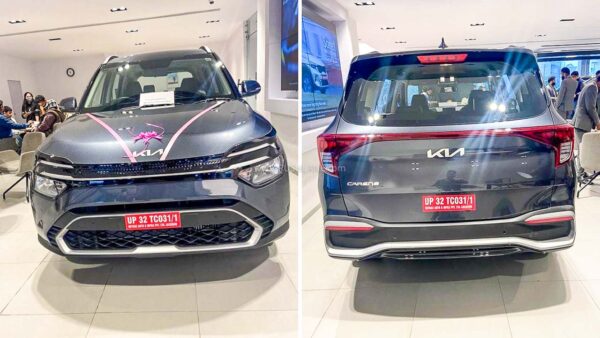Kia price hike will be effective from January 01 and will be applicable across the range

Starting out with Seltos in 2019, Kia has quickly made its way to the top 5 carmakers in the country. The South Korean company has introduced new products at regular intervals such as Sonet, Carnival, Carens and EV6.
In a move that could be linked to inflationary trends, Kia has announced Rs 50k price hike across the range. Upcoming stricter emission norms and new safety requirements could also be linked to the price hike. Apart from Kia, other carmakers such as Maruti Suzuki, Tata Motors, Renault, Audi and Mercedes-Benz have also announced price hikes from January 2023.
Upcoming RDE norms
Tests conducted in recent years have revealed that emissions during normal usage of a car are significantly higher in comparison to emissions produced during tests conducted in a laboratory environment. This defeats the purpose of mandating emission norms and fails to address the linked environmental concerns. As a solution, Real Driving Emissions (RDE) standards have been adopted in several countries across the globe. In India, RDE norms will be implemented from April 01, 2023.
Under RDE, OEMs will have to ensure that newer cars are fitted with a self-diagnostic device. It will monitor all the emission parameters, as mandated under RDE norms. For example, the device will monitor oxygen sensors, catalytic converter and emissions such as sulphur, CO2, nitrogen oxide and particulate matter. Other aspects will also be monitored such as throttle, crankshaft positions, air intake pressure, engine temperature, etc.

It is apparent that RDE compliance will necessitate the installation of new equipment and software systems. A number of advanced semiconductors will be used for such devices. As production cost will increase, carmakers have little option other than to increase prices. Achieving compliance with RDE is relatively more difficult and expensive in case of diesel cars. It is possible that diesel variants may have a higher price hike in comparison to their gasoline counterparts.
Impact of high inflation
Post Covid, the auto industry continues to face challenges arising from geo-political uncertainties. Many countries are battling high inflation, which has pushed-up prices of commodities. Maruti and Tata Motors have already talked about it and the situation is likely to be the same in case of Kia. It will take some time for inflation to ease completely across the globe. Just like in 2022, multiple price hikes could be announced in 2023.
It remains to be seen what kind of an impact the price hike will have on Kia’s sales. Meanwhile, Kia has forayed into pre-owned car business. Other carmakers like Maruti, Mahindra and Hyundai have similar platforms in place. Pre-owned car business works as an additional revenue stream and helps bring more transparency and trust for users.
Kia certified pre-owned cars offer a range of benefits such as 175 points quality checks, Kia genuine parts guarantee, verified car service and ownership history, up to 4 free services, hassle-free transfer, 2 years/40,000 km warranty and attractive finance options. Users can also sell their old car to drive home a new Kia.

